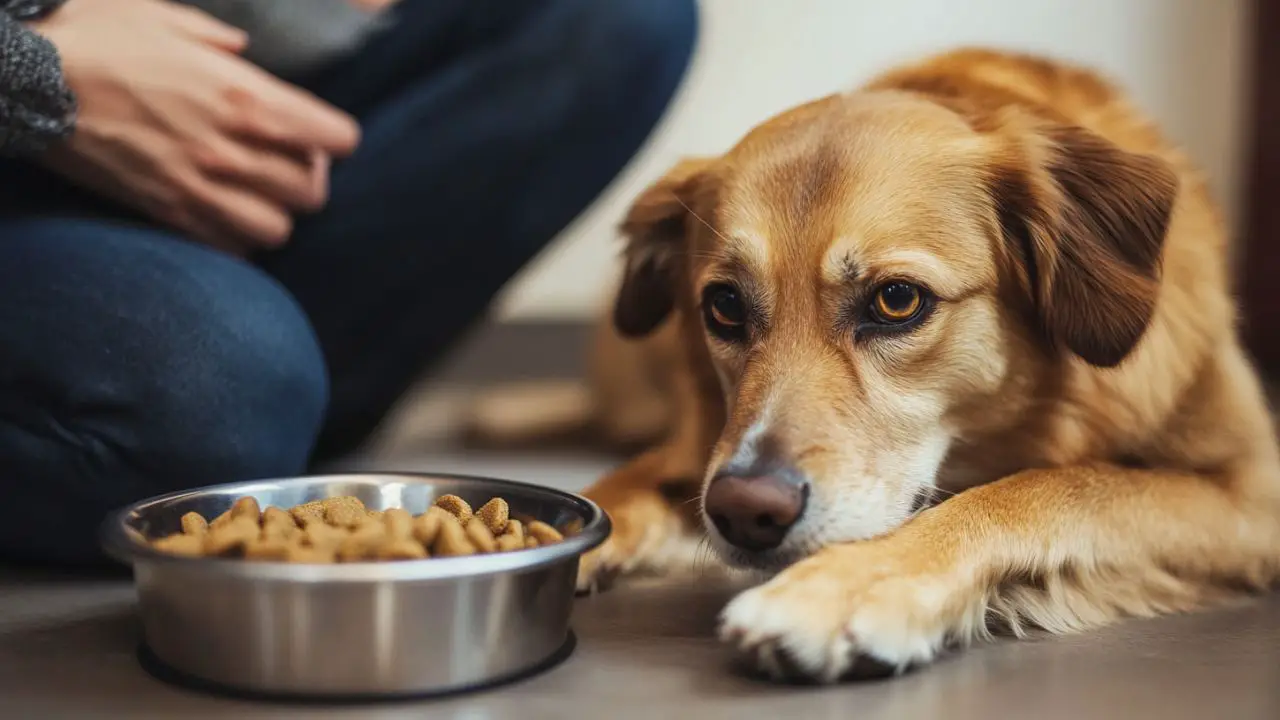As dog owners, we want nothing but the best for our furry friends.
We carefully choose their food, ensuring it’s nutritious and delicious.
But what happens when the food we’ve selected with such care doesn’t agree with our canine companion?
Food intolerance in dogs is more common than you might think, and recognizing the signs early can save your pet from discomfort and potential health issues.
In this article, we’ll explore six key indicators that your dog might be experiencing food intolerance.
What is Food Intolerance in Dogs?
Before we dive into the signs, let’s clarify what food intolerance means for our four-legged friends.
Food intolerance in dogs is different from a food allergy, although the symptoms can sometimes be similar.
Intolerance occurs when a dog’s digestive system has difficulty processing certain ingredients in their food.
Unlike allergies, which trigger an immune response, intolerances typically cause gastrointestinal upset and other non-immune related symptoms.
Now, let’s look at the six signs that might indicate your dog has a food intolerance.
1. Persistent Gastrointestinal Issues
One of the most common signs of food intolerance in dogs is ongoing digestive problems.
Chronic Diarrhea
If your dog frequently experiences loose stools or diarrhea, especially after meals, it could be a sign of food intolerance.
Pay attention to the consistency and frequency of your dog’s bowel movements.
Vomiting
Occasional vomiting can be normal for dogs, but frequent or chronic vomiting is a cause for concern.
If your dog regularly vomits after eating, it might be time to consider food intolerance as a possible cause.
2. Skin Problems and Excessive Itching
Food intolerances can manifest in surprising ways, including skin issues.
Persistent Itching
If your dog seems to be constantly scratching, even without visible fleas or other parasites, it could be related to their diet.
Food intolerances can cause inflammation that leads to itchy, uncomfortable skin.
Recurring Skin Infections
Repeated skin infections or hot spots might indicate that your dog’s immune system is compromised due to food intolerance.
These issues often appear on the paws, face, and ears.
3. Ear Infections
Chronic ear infections can be frustrating for both dogs and their owners.
While there are many potential causes, food intolerance is often overlooked.
If your dog suffers from recurring ear infections, especially if they’re accompanied by other symptoms on this list, consider their diet as a potential factor.
4. Changes in Behavior or Energy Levels
Food intolerances can affect more than just your dog’s physical health.
Lethargy
If your usually energetic pup seems constantly tired or uninterested in play, it could be due to discomfort from food intolerance.
Irritability
Some dogs may become more irritable or aggressive when they’re not feeling well due to dietary issues.
Pay attention to any unexpected changes in your dog’s temperament.
5. Weight Changes
Unexplained weight loss or gain can be a sign of various health issues, including food intolerance.
Weight Loss Despite Normal Eating Habits
If your dog is eating normally but still losing weight, it could be that they’re not properly absorbing nutrients due to food intolerance.
Sudden Weight Gain
Conversely, some dogs might gain weight unexpectedly if their body is struggling to process certain ingredients, leading to inflammation and water retention.
6. Flatulence and Bloating
While occasional gas is normal for dogs, excessive flatulence or bloating can indicate digestive issues.
Frequent Gas
If your dog’s gas seems excessive or has a particularly foul odor, it might be a sign that they’re not digesting their food properly.
Abdominal Discomfort
Watch for signs of abdominal discomfort, such as a swollen belly or your dog frequently stretching into a “play bow” position to relieve gas pressure.
What to Do If You Suspect Food Intolerance
If you’ve noticed one or more of these signs in your dog, it’s important not to jump to conclusions.
Many of these symptoms can also indicate other health issues.
The first step is to consult with your veterinarian.
They can help rule out other potential causes and guide you through the process of identifying and managing food intolerance.
This might involve an elimination diet or other diagnostic methods.
Remember, never make drastic changes to your dog’s diet without professional advice.
Conclusion
Recognizing the signs of food intolerance in dogs is crucial for their health and happiness.
By being attentive to changes in your dog’s digestion, skin, behavior, weight, and overall well-being, you can catch potential issues early.
If you suspect your furry friend might be dealing with food intolerance, don’t hesitate to seek professional help.
With the right approach, most dogs with food intolerances can lead healthy, comfortable lives once the problematic ingredients are identified and eliminated from their diet.
Remember, every dog is unique, and what works for one might not work for another.
Patience and persistence are key in finding the right dietary solution for your beloved pet.
By staying informed and proactive, you’re taking an important step in ensuring your dog’s long-term health and happiness.
After all, they deserve nothing but the best!
SHARE now with your friends!
- Hero Farm Dog Survives Epic Battle with Coyote Pack - December 9, 2024
- The 10-Minute Bedtime Routine That Changed My Dog’s Sleep Forever - November 29, 2024
- Creating a Safe Space for Nervous Pets: Your Guide to Pet-Friendly Havens - November 25, 2024

